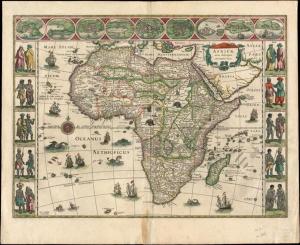The Secrect Service: The Field, The Dungeon, and The Escape
Nonfiction, Religion & Spirituality, New Age, History, Fiction & Literature| Author: | Albert Deane Richardson | ISBN: | 9781465619495 |
| Publisher: | Library of Alexandria | Publication: | March 8, 2015 |
| Imprint: | Language: | English |
| Author: | Albert Deane Richardson |
| ISBN: | 9781465619495 |
| Publisher: | Library of Alexandria |
| Publication: | March 8, 2015 |
| Imprint: | |
| Language: | English |
Early in 1861, I felt a strong desire to look at the Secession movement for myself; to learn, by personal observation, whether it sprang from the people or not; what the Revolutionists wanted, what they hoped, and what they feared. But the southern climate, never propitious to the longevity of Abolitionists, was now unfavorable to the health of every northerner, no matter how strong his political constitution. I felt the danger of being recognized; for several years of roving journalism, and a good deal of political speaking on the frontier, had made my face familiar to persons whom I did not remember at all, and given me that large and motley acquaintance which every half-public life necessitates. Moreover, I had passed through the Kansas struggle; and many former shining lights of Border Ruffianism were now, with perfect fitness, lurid torches in the early bonfires of Secession. I did not care to meet their eyes, for I could not remember a single man of them all who would be likely to love me, either wisely or too well. But the newspaper instinct was strong within me, and the journalist who deliberates is lost. My hesitancy resulted in writing for a roving commission to represent The Tribune in the Southwest. A few days after, I found the Managing Editor in his office, going through the great pile of letters the morning mail had brought him, with the wonderful rapidity which quick intuition, long experience, and natural fitness for that most delicate and onerous position alone can give. For the modern newspaper is a sort of intellectual iron-clad, upon which, while the Editorial Captain makes out the reports to his chief, the public, and entertains the guests in his elegant cabin, the leading column, and receives the credit for every broadside of type and every paper bullet of the brain poured into the enemy,—back out of sight is an Executive Officer, with little popular fame, who keeps the ship all right from hold to maintop, looks to every detail with sleepless vigilance, and whose life is a daily miracle of hard work. The Manager went through his mail, I think, at the rate of one letter per minute. He made final disposition of each when it came into his hand; acting upon the great truth, that if he laid one aside for future consideration, there would soon be a series of strata upon his groaning desk, which no mental geologist could fathom or classify. Some were ruthlessly thrown into the waste-basket. Others, with a lightning pencil-stroke, to indicate the type and style of printing, were placed on the pile for the composing-room.
Early in 1861, I felt a strong desire to look at the Secession movement for myself; to learn, by personal observation, whether it sprang from the people or not; what the Revolutionists wanted, what they hoped, and what they feared. But the southern climate, never propitious to the longevity of Abolitionists, was now unfavorable to the health of every northerner, no matter how strong his political constitution. I felt the danger of being recognized; for several years of roving journalism, and a good deal of political speaking on the frontier, had made my face familiar to persons whom I did not remember at all, and given me that large and motley acquaintance which every half-public life necessitates. Moreover, I had passed through the Kansas struggle; and many former shining lights of Border Ruffianism were now, with perfect fitness, lurid torches in the early bonfires of Secession. I did not care to meet their eyes, for I could not remember a single man of them all who would be likely to love me, either wisely or too well. But the newspaper instinct was strong within me, and the journalist who deliberates is lost. My hesitancy resulted in writing for a roving commission to represent The Tribune in the Southwest. A few days after, I found the Managing Editor in his office, going through the great pile of letters the morning mail had brought him, with the wonderful rapidity which quick intuition, long experience, and natural fitness for that most delicate and onerous position alone can give. For the modern newspaper is a sort of intellectual iron-clad, upon which, while the Editorial Captain makes out the reports to his chief, the public, and entertains the guests in his elegant cabin, the leading column, and receives the credit for every broadside of type and every paper bullet of the brain poured into the enemy,—back out of sight is an Executive Officer, with little popular fame, who keeps the ship all right from hold to maintop, looks to every detail with sleepless vigilance, and whose life is a daily miracle of hard work. The Manager went through his mail, I think, at the rate of one letter per minute. He made final disposition of each when it came into his hand; acting upon the great truth, that if he laid one aside for future consideration, there would soon be a series of strata upon his groaning desk, which no mental geologist could fathom or classify. Some were ruthlessly thrown into the waste-basket. Others, with a lightning pencil-stroke, to indicate the type and style of printing, were placed on the pile for the composing-room.















